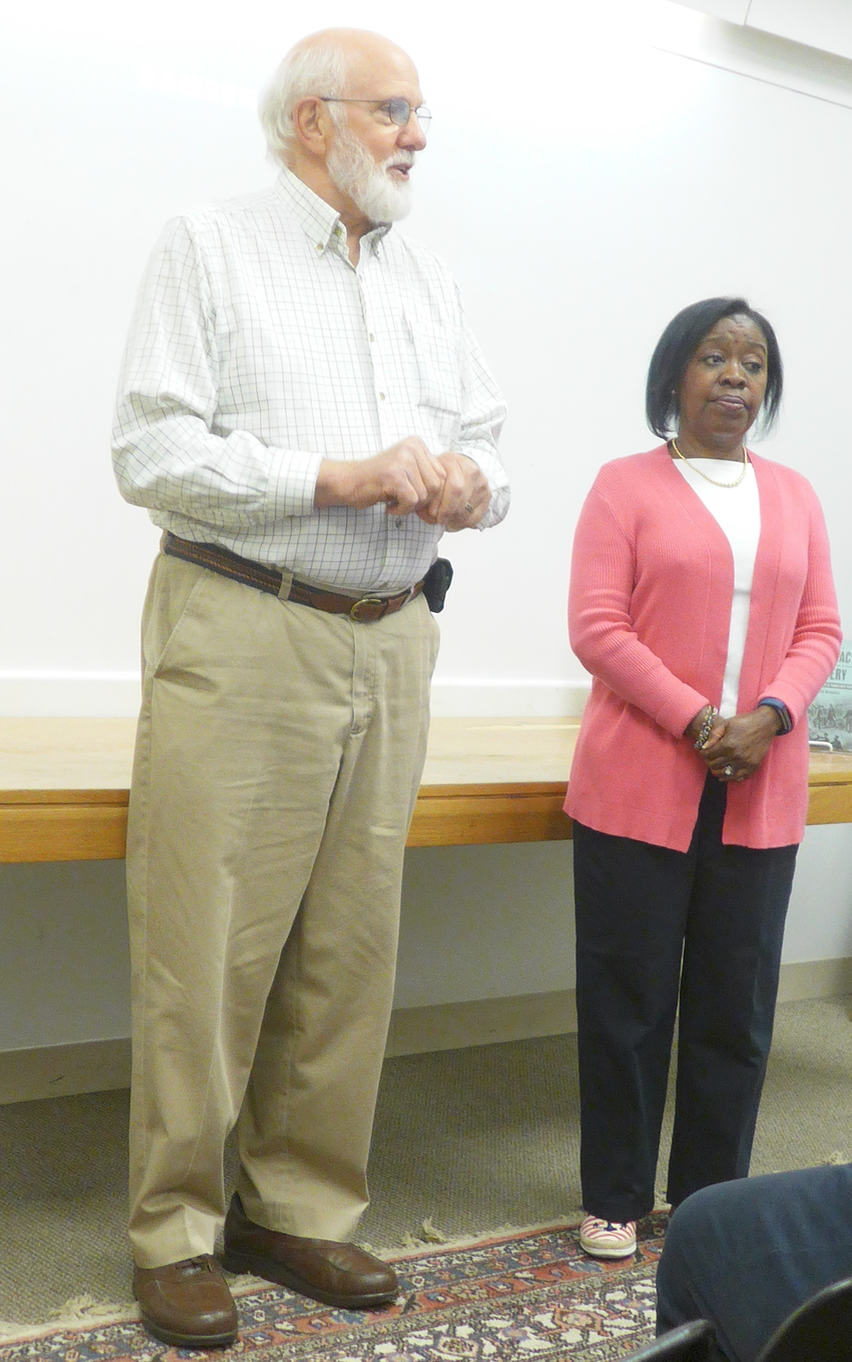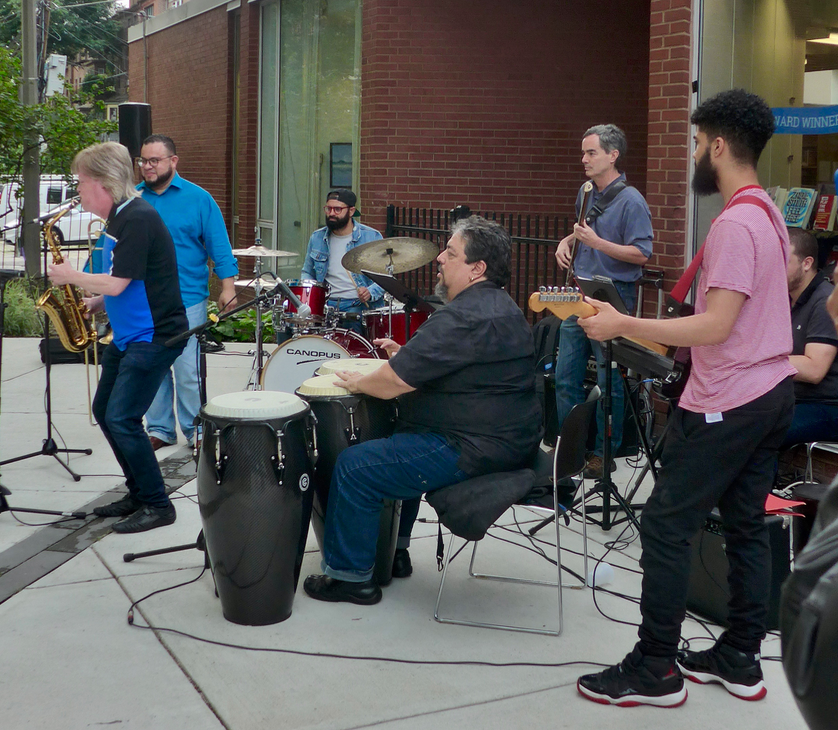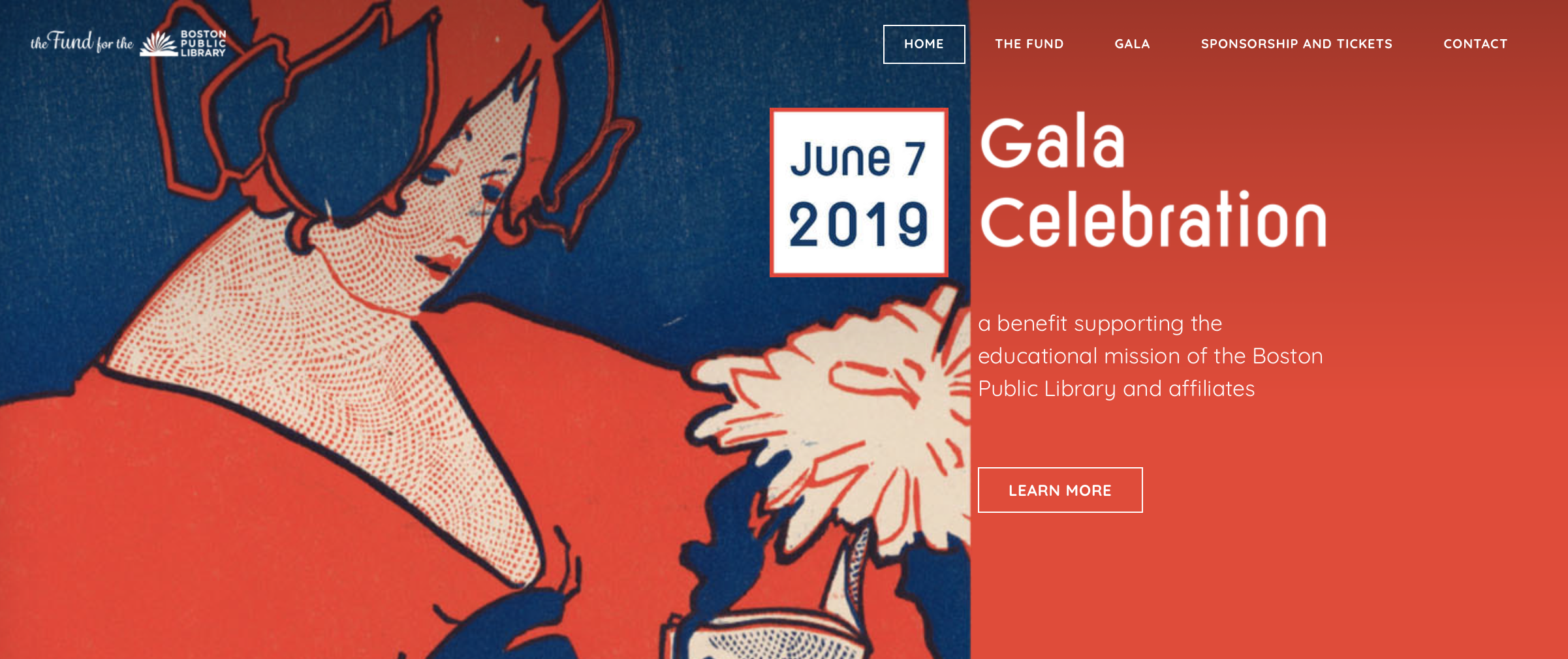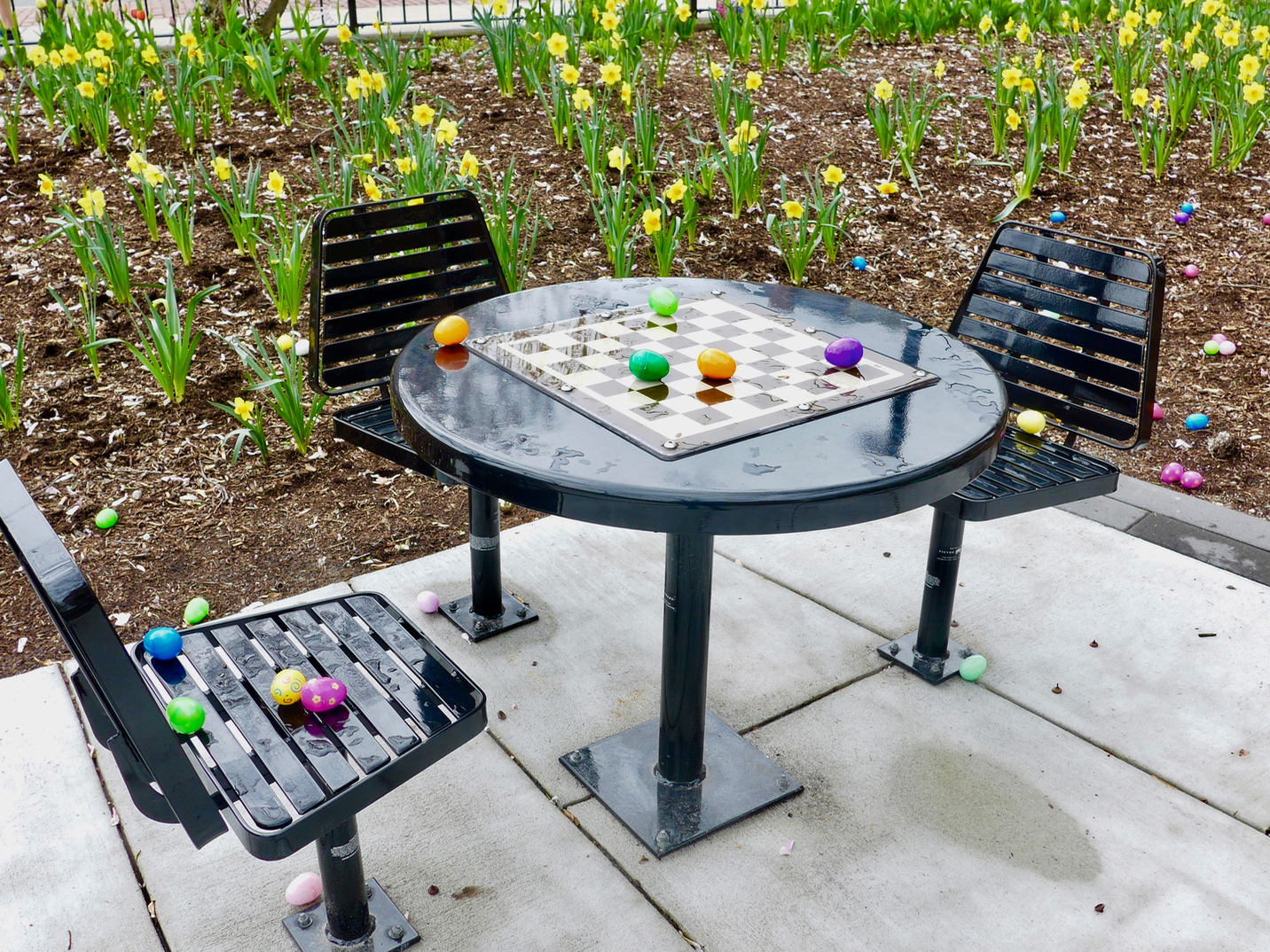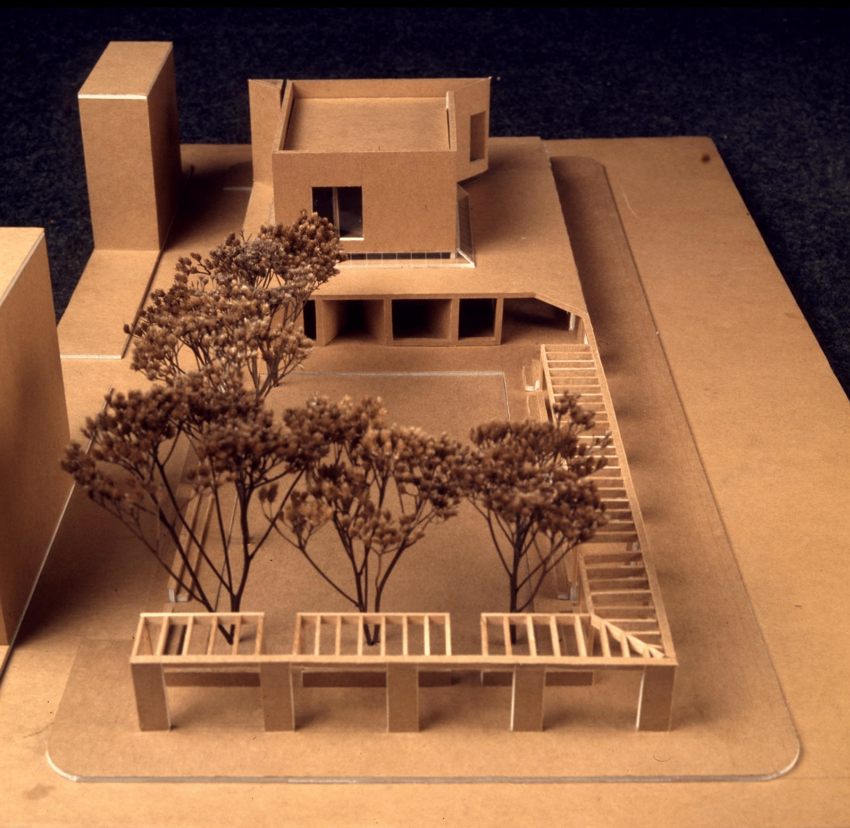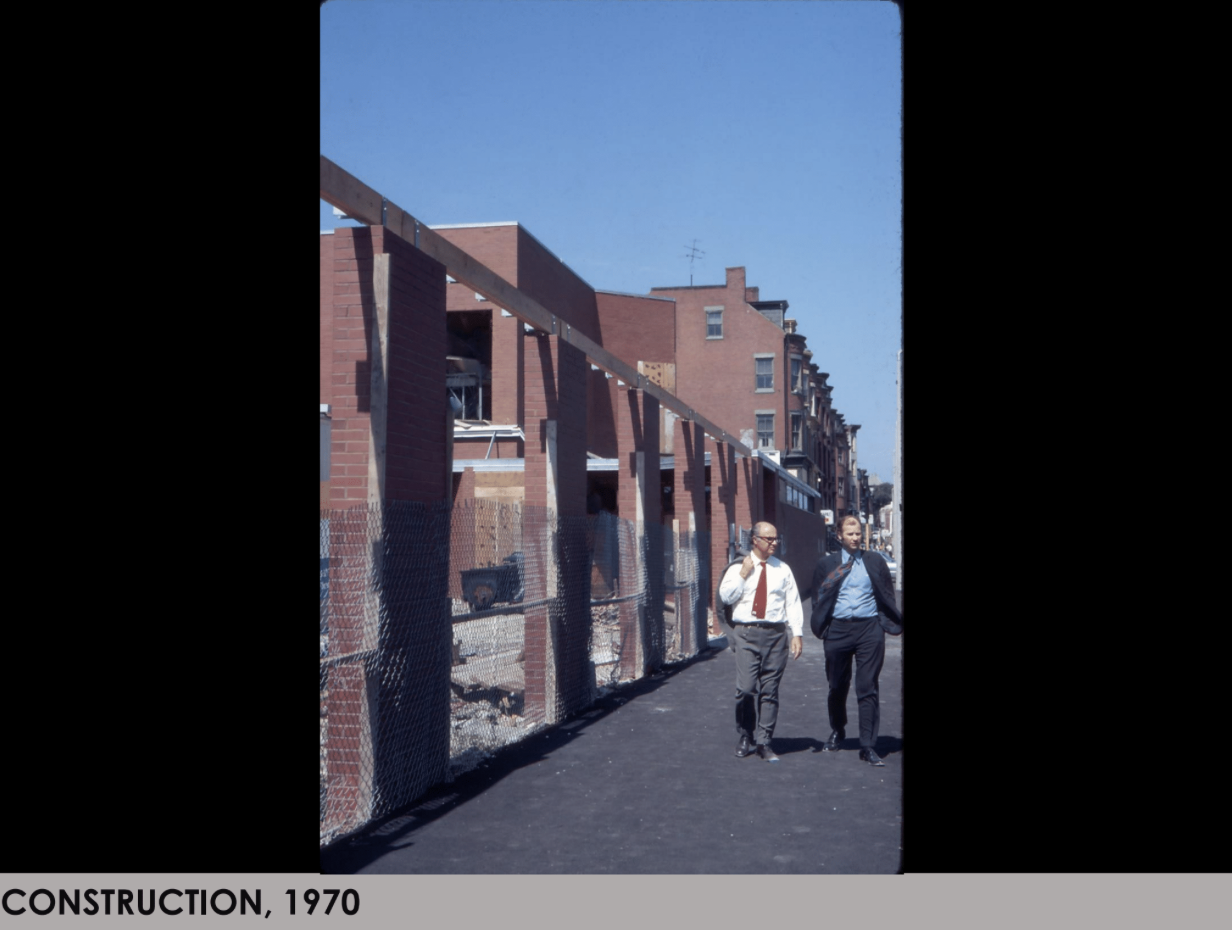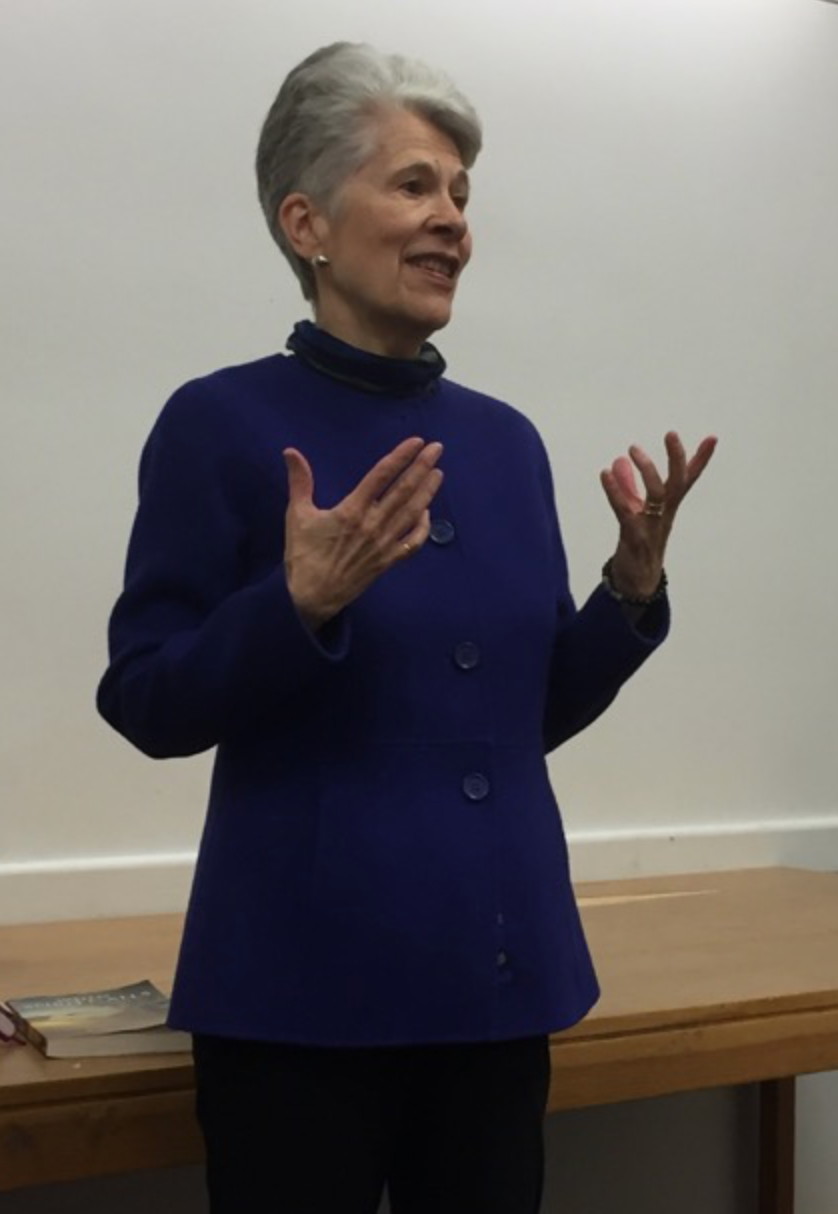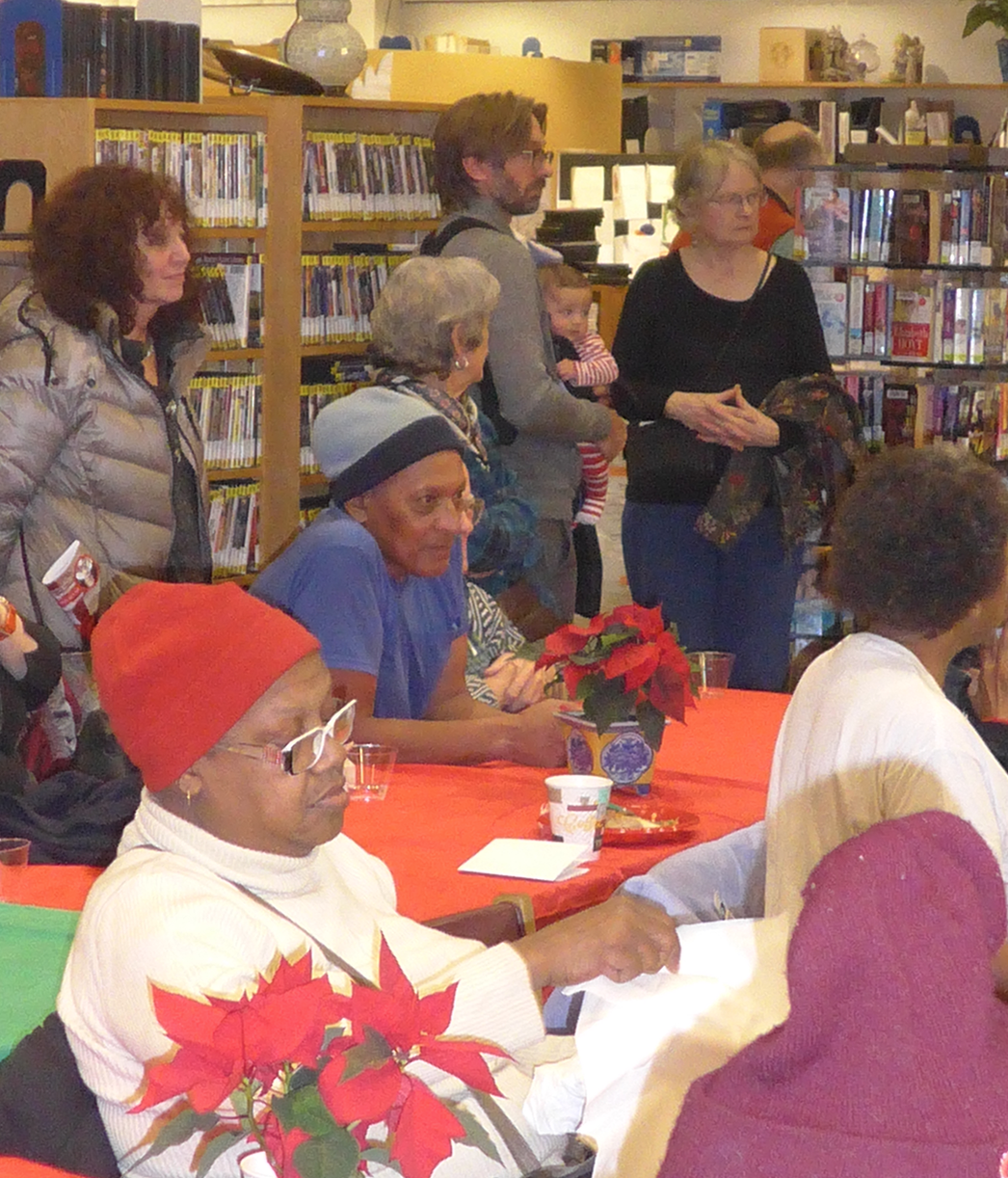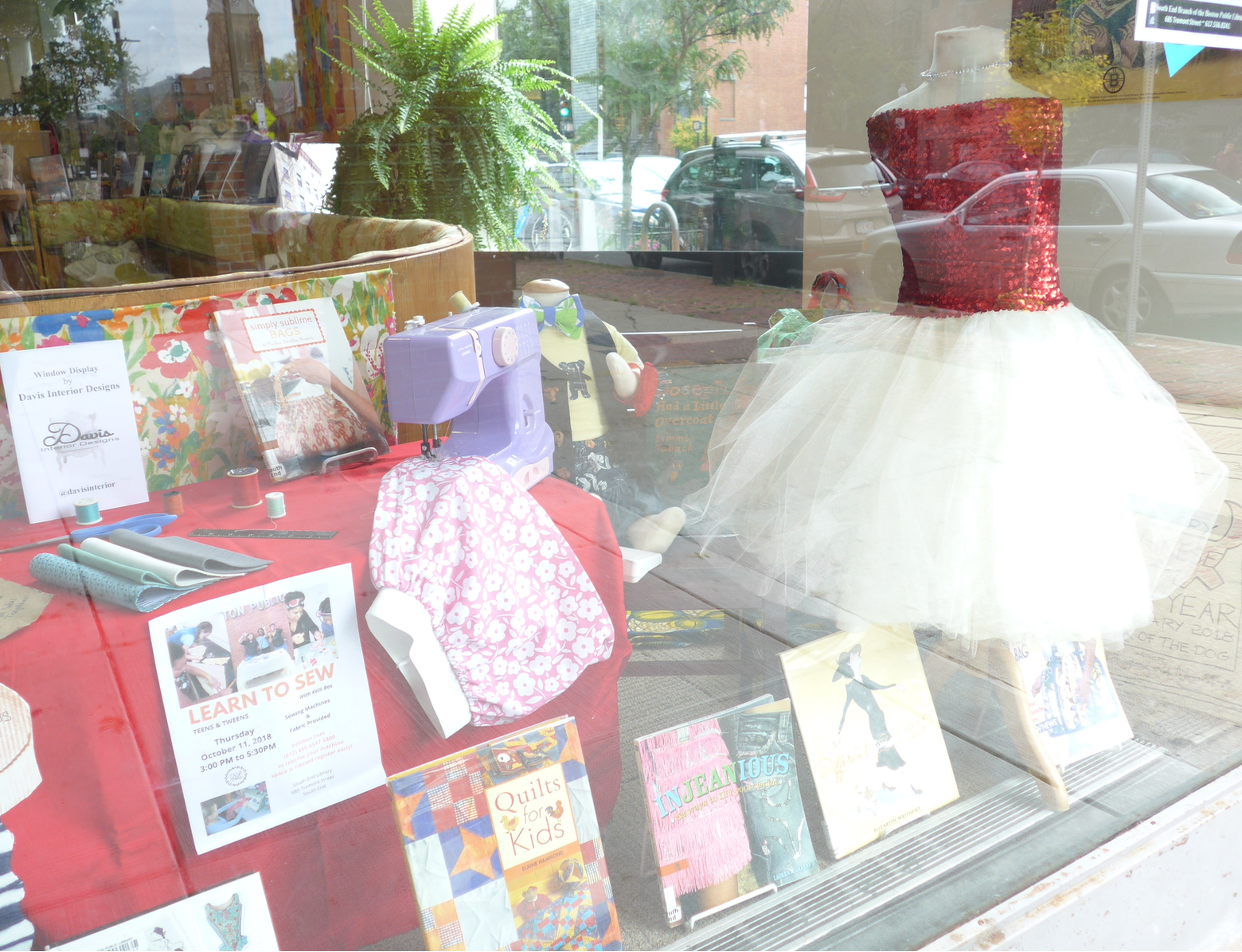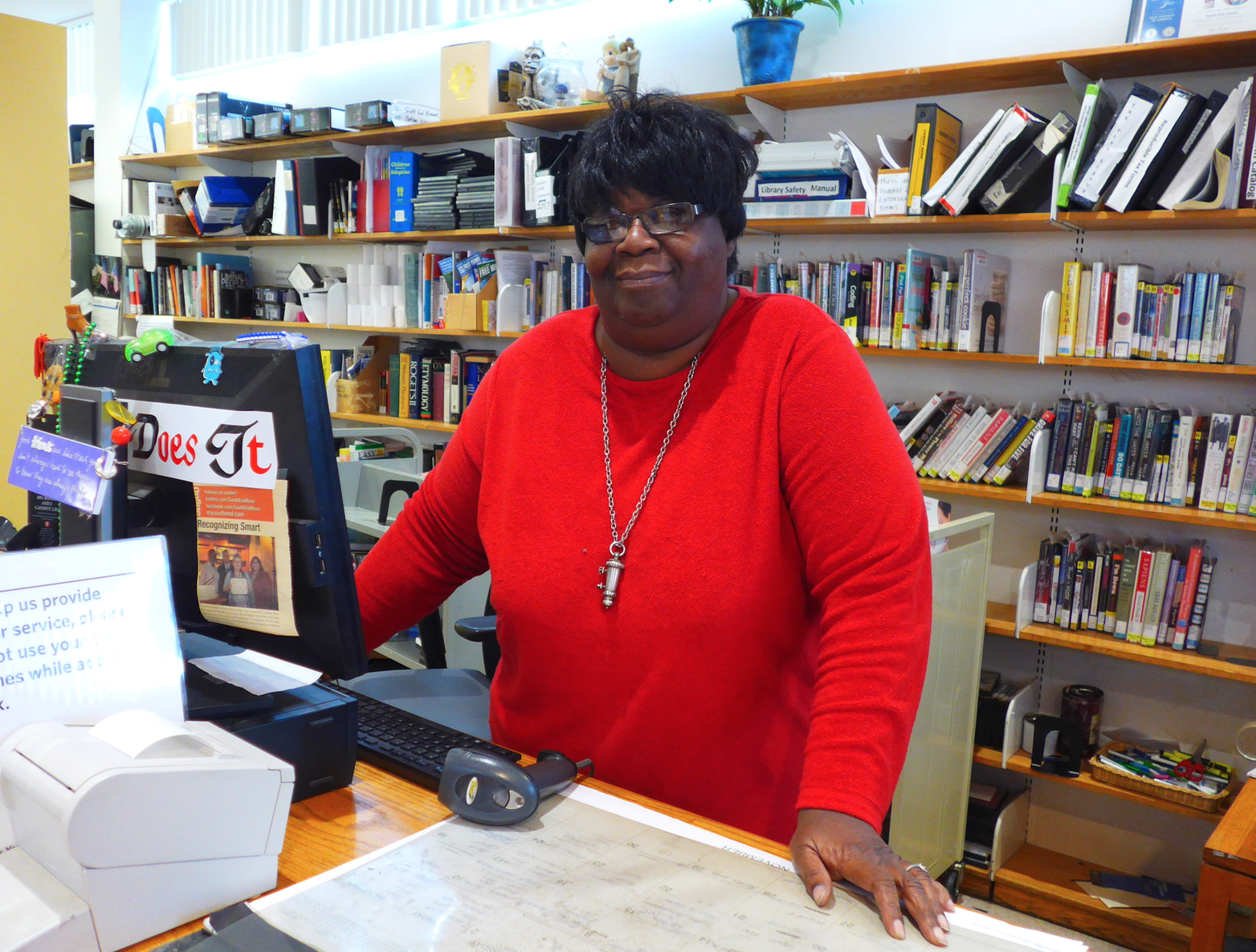Author and urban historian Russ Lopez, who introduced Alison Barnet (right)
Ann Hershfang introducing Alison Barnet on October 15
In a first for the South End Writes author series, local history chronicler Alison Barnet had such an overflow audience for her scheduled talk about Once Upon A Neighborhood: A Timeline and Anecdotal History of he South End of Boston on October 8 that a follow-up event was held a week later. South End neighbors and friends passionate about the local scene filled the library’s community room on October 15 as well, reminiscing about the neighborhood as it was then (“a sense of community,” “people recognizing humanness,” “multiculturalism,’ “people easier to talk to”) and, perhaps less so, as it appears to be now to at least some (““coldness,” “distancing,” “gentrification,” “$5,000 baby carriages”). The emotions reached such a pitch that someone felt compelled to caution the audience that “history can become nostalgic. We shouldn’t idealize ‘our moment’ and not see the potential in ‘this moment,’” the attendee said. “Without denigrating history, there is our moment here, too.”
The author wearing a Hite Radio and TV t-shirt
The author of a series of perceptive, original and passionate analyses of the South End as both a place and a character, Barnet landed in the South End in the 1960s when, as a transfer student to Boston University, she was not offered dorm space. She found room in one of the “approved” living spaces for women at the time, the Franklin Square House on East Newton Street, where her love affair with the South End began as she walked from the South End back and forth to BU every day. As she reported in a previous book, South End Character, “I liked it when people spoke to me, and I found what they said witty, offbeat, profound, poetic, right on target, and never boring.” One of the founders of the South End News in the 1980s, Barnet also wrote Extravaganza King: Robert Barnet and Boston Musical Theater and Sitting Ducks.
Urban historian, Russ Lopez about to introduce Alison barnet on October 8
Pages from Once Upon a Neighborhood
Longtime South End resident Ann Hershfang, founder and board member of WalkBoston and a member of the South End Library’s History Collective, introduced Barnet on October 15 while urban historian, Russ Lopez, also part of the Collective, had done the honors for Barnet’s talk on October 8. Copies of the book were hot off the presses on the first night, and sold out at both events. At each reading, Barnet wore a series of T-shirts with logos of historic South End organizations.
The time line format in Once Upon a Neighborhood
Writing Once Upon a Neighborhood began five years ago, Barnet recounted, inspired by another Boston historian, James Vrabel, author of When in Boston: A Time Line & Almanac. Initially believing it would be a few short pages, she became obsessed by its potential and, with the continued support of the Collective, completed it after four-and-a-half years. Helpfully organized as a time line, Once Upon a Neighborhood is a treasure trove of South End history with references to, among other items, an amazing list of publications, some of which survived but many not. They included, for example, the Midtown Journal; the Boston Chronicle; the South End Sun; the Boston Guardian; a newsletter called Hi Neighbor; the New South End; the South Bay Union; the SEPAC newsletter; the People’s South End News; The Neck. and many others.
Alison Barnet with a t-shirt from Chico’s Variety & News Co.
FOSEL has received a number of inquiries about where to purchase a copy of Once Upon a Neighborhood: A Timeline and Anecdotal History of the South End of Boston. Since the South End library is closed for an upgrade until sometime in February 2020, the traditional location for the book’s acquisition is not available. The author has emailed us to say that buyers can call her at 617-267-7018 and leave a message with a phone number. She will then arrange a sale, for $30, cash. When the library reopens, the book will be available at the counter.












